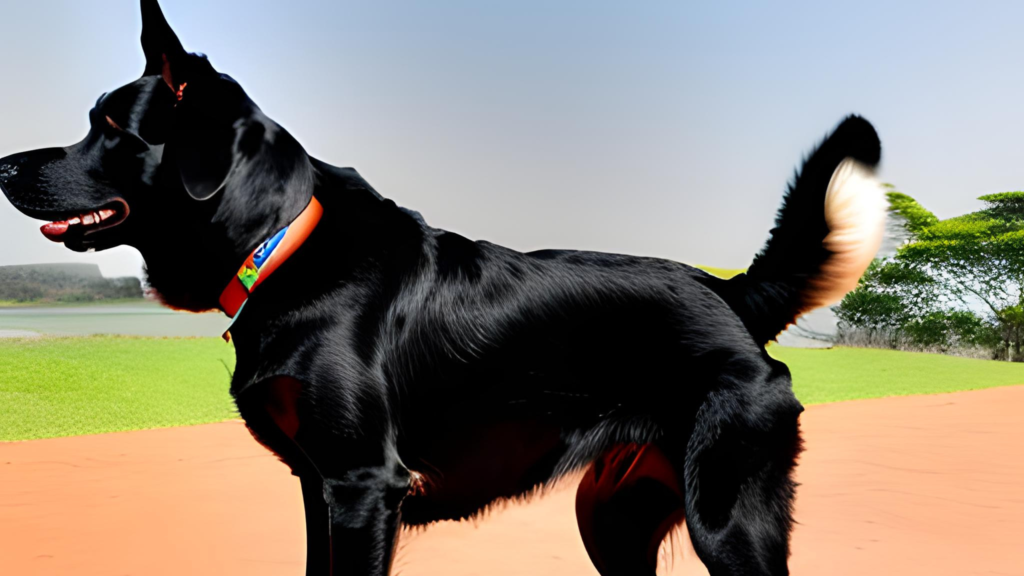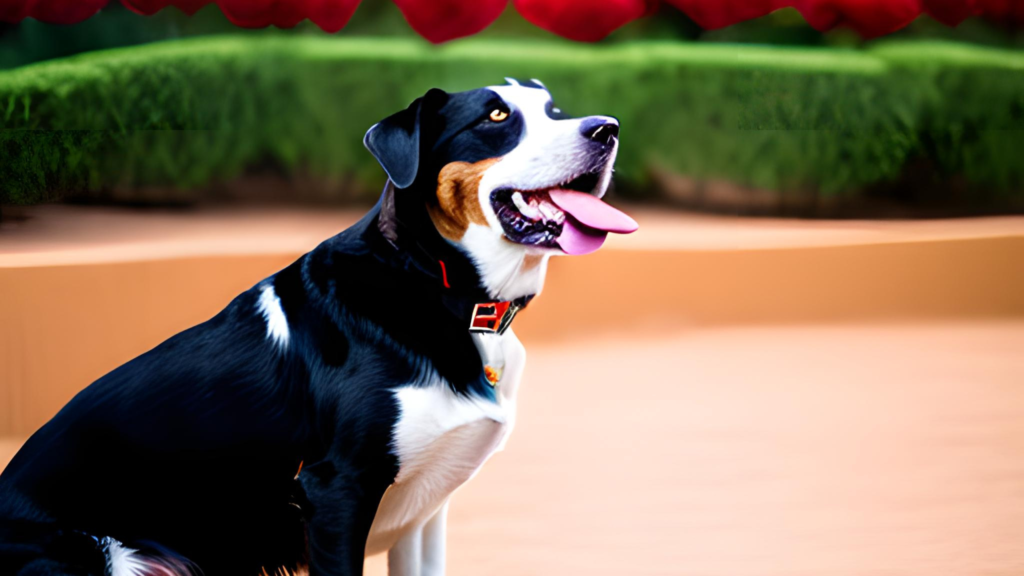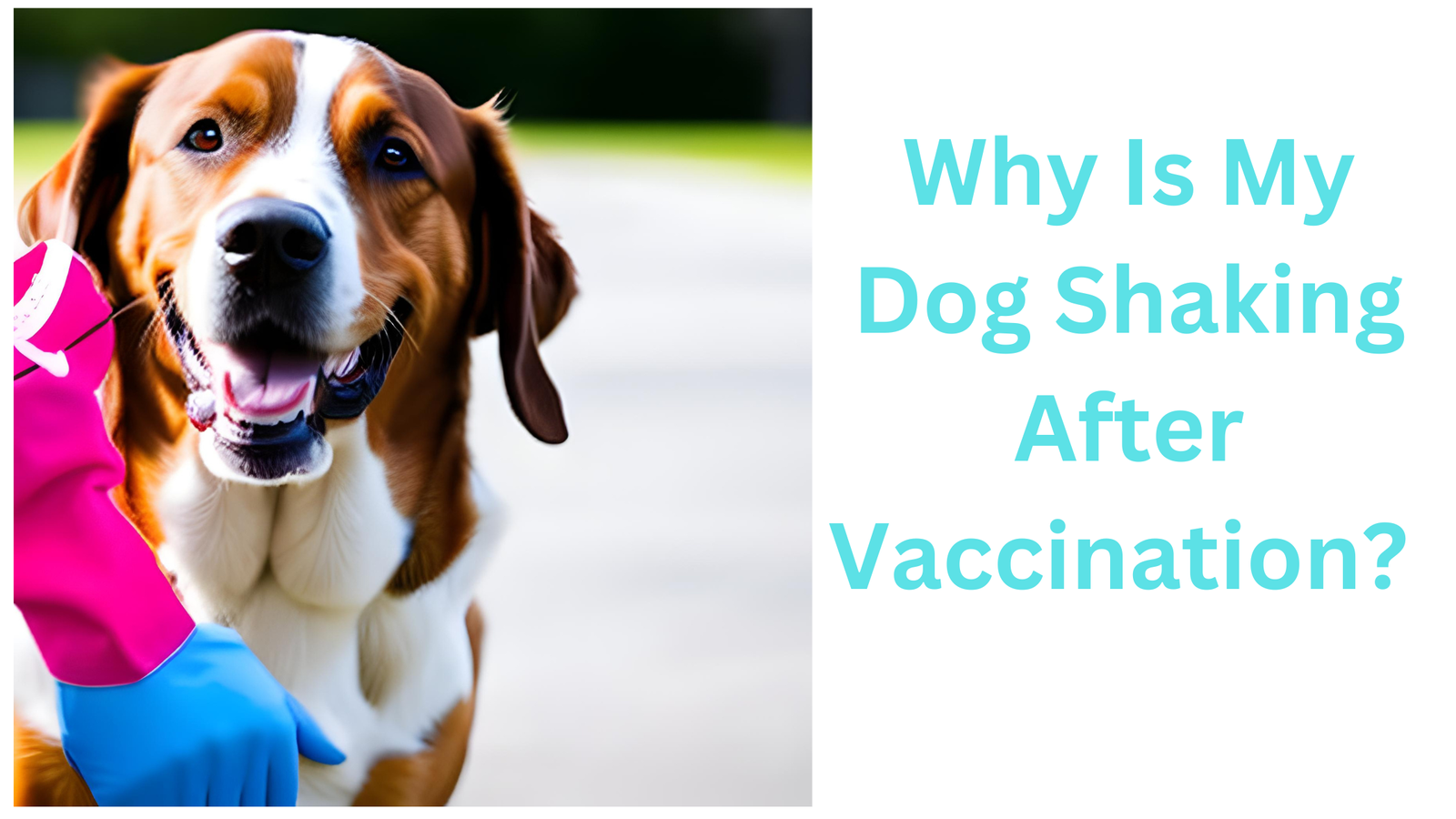Vaccinations are crucial to keeping your dog healthy and protected against disease. While vaccines are generally safe and effective, some dogs may experience side effects, including shaking or trembling, after receiving their shots. If you’ve noticed your dog shaking after vaccination, you may wonder if this is a cause for concern and how you can help your furry friend feel better. In this article, we’ll explore why dogs may shake after vaccination, when to seek veterinary attention and tips for preventing side effects in the future.
The Importance of Vaccinating Your Dog: Why Vaccinations are Essential
Vaccinating your dog is one of the most important things you can do as a pet owner. Vaccinations help protect your dog from various infectious diseases that can be fatal or cause severe illness. They also cover other dogs your pet may come into contact with and people in your community.
Vaccines can protect against several diseases, including distemper, parvovirus, hepatitis, and rabies. These diseases are highly contagious and can be contracted through contact with infected animals, contaminated objects, or the environment.
Vaccines stimulate your dog’s immune system to produce antibodies that can fight off the disease. This way, if your dog is exposed to the condition in the future, their body will be able to recognize and fight it off more effectively.
In addition to protecting your dog’s health, vaccinations are also required by law in many areas. For example, rabies vaccinations are mandatory in most states, and failure to comply can result in legal penalties.
Vaccines are essential to responsible pet ownership and help keep your dog healthy and safe.
Common Side Effects of Vaccination in Dogs: What to Expect
Like any medical treatment, vaccinations can cause side effects in some dogs. While most side effects are mild and temporary, knowing what to expect after your dog has been vaccinated is important.
The most common side effects of vaccination in dogs include the following:
- Mild fever: It’s common for dogs to have a slight fever after vaccination. This is usually a sign that their immune system responds to the vaccine.
- Reduced appetite: Some dogs may experience a loss of appetite or decreased interest in food for a day or two after vaccination.
- Lethargy: Your dog may be more tired or sleepy after vaccination. This is normal and should resolve within a day or two.
- Swelling or soreness at the injection site: It’s not uncommon for the area where the vaccine was injected to be sore or swollen for a few days after vaccination.
- Allergic reactions: Although rare, some dogs may have an allergic reaction to a vaccine. Signs of an allergic reaction include swelling of the face or extremities, difficulty breathing, vomiting, diarrhea, and collapse. If you notice any of these symptoms, seek veterinary attention immediately.
It’s important to remember that these side effects are generally mild and should resolve within a day or two. If you’re concerned about your dog’s symptoms or they persist for more than a few days, contact your veterinarian for advice.
Also Read: Can Dogs Sense Negative Energy? Hidden Power of Canine Intuition
Why is My Dog Shaking After Vaccination? Understanding the Causes

There can be several reasons why your dog is shaking after vaccination. Some of the most common causes include:
Pain or discomfort at the injection site
The injection site can be sore or tender after vaccination, which may cause your dog to shake or shiver.
Fever
As mentioned earlier, a mild fever is a common side effect of dog vaccination. A fever can cause your dog to feel cold and shiver.
Anxiety or fear
Some dogs may feel anxious or afraid during the vaccination process, which can cause them to shake or tremble.
Hypoglycemia
Low blood sugar levels can cause your dog to shake or tremble. This can occur if your dog has not eaten before the vaccination appointment.
Allergic reaction
As mentioned earlier, while rare, an allergic reaction to a vaccine can cause shaking or tremors in your dog.
It’s important to monitor your dog after vaccination to ensure they are not experiencing any severe symptoms.
If your dog’s shaking persists or is accompanied by other concerning symptoms, such as vomiting or diarrhea, contact your veterinarian for advice.
In most cases, shaking after vaccination is a mild and temporary side effect that will resolve independently.
Is Shaking After Vaccination Normal? When to Call Your Vet
Shaking after vaccination can be a normal side effect, especially if it’s mild and only lasts for a short period. However, monitoring your dog and being aware of other symptoms that may indicate a more serious problem is important.
Suppose your dog’s shaking persists for more than a day or is accompanied by other concerning symptoms, such as vomiting, diarrhea, or difficulty breathing. These symptoms may indicate a more severe allergic reaction or other underlying medical conditions. In that case, it’s important to contact your veterinarian right away.
It’s also important to seek veterinary attention if your dog’s shaking is severe, your dog seems lethargic, or if they are not eating or drinking normally. These symptoms could signify a more serious reaction to the vaccine or an underlying health issue.
Suppose you are concerned about your dog’s shaking after vaccination. In that case, it’s always best to avoid caution and contact your veterinarian for advice. Your veterinarian can provide guidance on what to do and help determine if your dog needs to be seen.
Remedies for Shaking After Vaccination: How to Help Your Dog Feel Better
If your dog is shaking after vaccination, there are a few things you can do to help them feel more comfortable:
- Keep them warm: Shaking can signify your dog feels cold or uncomfortable. Ensure they have a warm, comfortable resting place, such as a cozy bed or blanket.
- Offer them water: Ensure your dog has access to fresh water, as shaking can sometimes be a sign of dehydration.
- Monitor their symptoms: Keep an eye on your dog’s shaking and any other symptoms they may be experiencing. If their symptoms worsen or persist, contact your veterinarian for advice.
- Provide comfort: Spend time with your dog and provide comfort through cuddling or gentle petting. This can help reduce stress and anxiety.
- Offer a treat: If your dog is willing to eat, offering them a small charm or snack can help distract them and may make them feel better.
It is important to be patient and understanding with your dog if they are shaking after vaccination. This is usually a mild and temporary side effect that will resolve within a day or two. However, if your dog’s symptoms are severe or persist, it’s important to seek veterinary attention.
Preventing Side Effects in the Future: Tips for Preparing Your Dog for Vaccination

Preventing side effects in the future begins with properly preparing your dog for vaccination. Here are some tips to help prepare your dog for their next vaccination appointment:
- Please schedule an appointment at the right time: It’s important to schedule your dog’s vaccination appointment when they are healthy and not experiencing other health issues. This can reduce the risk of side effects and ensure the vaccine is effective.
- Talk to your veterinarian: Discuss any concerns before your dog’s vaccination appointment. They can advise what to expect and how to best prepare your dog.
- Ensure your dog is well-nourished: Low blood sugar levels can increase the risk of side effects after vaccination. Make sure your dog has eaten a meal before their appointment.
- Keep your dog calm: Anxiety or fear can increase the risk of side effects. Keeping your dog calm and relaxed before and during their appointment can help reduce stress and anxiety.
- Monitor your dog after vaccination: Keep an eye on your dog after vaccination and monitor for any side effects. If you notice any concerning symptoms, contact your veterinarian right away.
By following these tips and working closely with your veterinarian, you can help reduce the risk of side effects and ensure your dog stays healthy and protected against disease.
Also Read: Mothers Pudding for dogs: A Nutritious and Delicious Treat
The Bottom Line: Understanding Shaking After Vaccination and How to Help Your Dog.
In conclusion, dogs’ shaking after vaccination is a common side effect. It’s usually mild and temporary and resolves independently within a day or two. However, in rare cases, shaking can signify a more severe allergic reaction or underlying medical condition.
If your dog is shaking after vaccination, keep them warm and comfortable, offer them water, and monitor their symptoms. If their symptoms worsen or persist, contact your veterinarian for advice.
To prevent side effects in the future, schedule vaccination appointments at the right time, talk to your veterinarian, make sure your dog is well-nourished, keep them calm, and monitor them after vaccination.
Overall, vaccinations are essential for your dog’s health and well-being, and it’s important to work closely with your veterinarian to ensure your dog stays protected against disease.
Frequently Asked Questions (FAQs) related to shaking after vaccination in dogs:
Is shaking after vaccination in dogs normal?
Yes, shaking after immunization can be a normal side effect in dogs. It’s usually mild and temporary and resolves independently within a day or two.
When should I be concerned about my dog shaking after vaccination?
If your dog’s shaking persists for more than a day or is accompanied by other concerning symptoms, such as vomiting, diarrhea, or difficulty breathing, it’s important to contact your veterinarian right away.
How can I help my dog feel better if they are shaking after vaccination?
You can keep your dog warm and comfortable, offer them water, monitor their symptoms, provide comfort, and offer a treat if they are willing to eat.
Can I prevent side effects in my dog after vaccination?
You can help avoid side effects by scheduling vaccination appointments at the right time, ensuring your dog is well-nourished, keeping them calm, and monitoring them after vaccination.
How often should my dog be vaccinated?
The frequency of vaccination depends on various factors, such as your dog’s age, breed, lifestyle, and health status. Your veterinarian can provide guidance on when and how often your dog should be vaccinated.
